Intentar ORO - Gratis
The Philosophical Method of Exception
Philosophy Now
|August/September 2025
Peter Keeble spotlights and critiques a common philosophical technique.

One of the ways philosophy works is this. You define some useful concept, such as knowledge, or morality, or inductive reasoning. Then someone comes along with an example of knowledge, or a moral act, or a property concerning inductive prediction that seems to lie beyond those defining characteristics. This happened not so long ago in all these cases. Knowledge was well established as ‘justified true belief until Edmund Gettier’s brief 1963 article ‘Is Justified True Belief Knowledge?’ gave apparent counterexamples. Immoral acts, we would always have previously assumed, must involve some harm to someone until Derek Parfit’s Reasons and Persons in 1984. Inductive reasoning, though always held in suspicion by philosophers, became doubly so with Nelson Goodman’s Fact, Fiction and Forecast (1955). We want to be sure about what constitutes knowledge, morality, and inductive reasoning, since we use these concepts every day. We think we understand them, but , do we really?
Gettier on Knowledge
Here’s one of Gettier’s counterexamples to knowledge being justified true belief. Smith and his friend Jones apply for a job. At his interview, the CEO strongly suggests to Smith that Jones will be the successful candidate. For some bizarre reason, while Jones is interviewed, Smith counts the coins in his friend’s pocket: there are ten. Smith therefore feels he knows that the successful candidate will have ten coins in his pocket. But it turns out he, not his friend, gets the job. And it just so happens that he also has ten coins in his pocket. It seems therefore that he had a justified true belief that the successful candidate would have ten coins in his pocket. Yet we do not feel it right to say he knew this.
Esta historia es de la edición August/September 2025 de Philosophy Now.
Suscríbete a Magzter GOLD para acceder a miles de historias premium seleccionadas y a más de 9000 revistas y periódicos.
¿Ya eres suscriptor? Iniciar sesión
MÁS HISTORIAS DE Philosophy Now

Philosophy Now
Pharmaco-Metaphysics?
Raymond Tallis argues against acidic assertions, and doubts DMT discoveries.
7 mins
August/September 2025
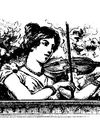
Philosophy Now
Nine Spiritual Exercises
Massimo Pigliucci explains how to get Philo-Sophical.
3 mins
August/September 2025

Philosophy Now
Books
We follow mammal's search for meaning, as Mark Vorobej savages John Gray's book of impractical cat philosophy, while B.V.E. Hyde ponders the point of Jordan Peterson. In Classics, Hilarius Bogbinder reviews Plato's Republic.
21 mins
August/September 2025
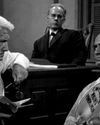
Philosophy Now
The Centennial of the Scopes ‘Monkey’ Trial
Tim Madigan on the creation and the evolution of a legend.
14 mins
August/September 2025
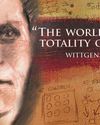
Philosophy Now
Gödel, Wittgenstein, & the Limits of Knowledge
Michael D. McGranahan takes us to the edge of language, mathematics and science.
10 mins
August/September 2025
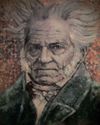
Philosophy Now
Weltschmerz and the World
Ian James Kidd takes a realistic and global view of the history of pessimism.
10 mins
August/September 2025
Philosophy Now
What Makes A Work Of Art Great?
Each answer below receives a book. Apologies to all the entrants not included.
16 mins
August/September 2025

Philosophy Now
The Beatles: Nothing is Real
Clinton Van Inman gets back to the psychedelic Sixties.
4 mins
August/September 2025

Philosophy Now
The Post-Truth Kerfuffle
Susan Haack, who is Distinguished Professor in the Humanities, Cooper Senior Scholar in Arts & Sciences, Professor of Philosophy, and Professor of Law, at the University of Miami, talks with Angela Tan about how and when we know.
11 mins
August/September 2025
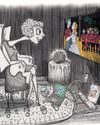
Philosophy Now
A Crisis of Attention
Paul Doolan attends to our culture of attention demanding.
13 mins
August/September 2025
Listen
Translate
Change font size
